2016 Tour de France route revealed
103rd edition of the race to visit Ventoux and Berne
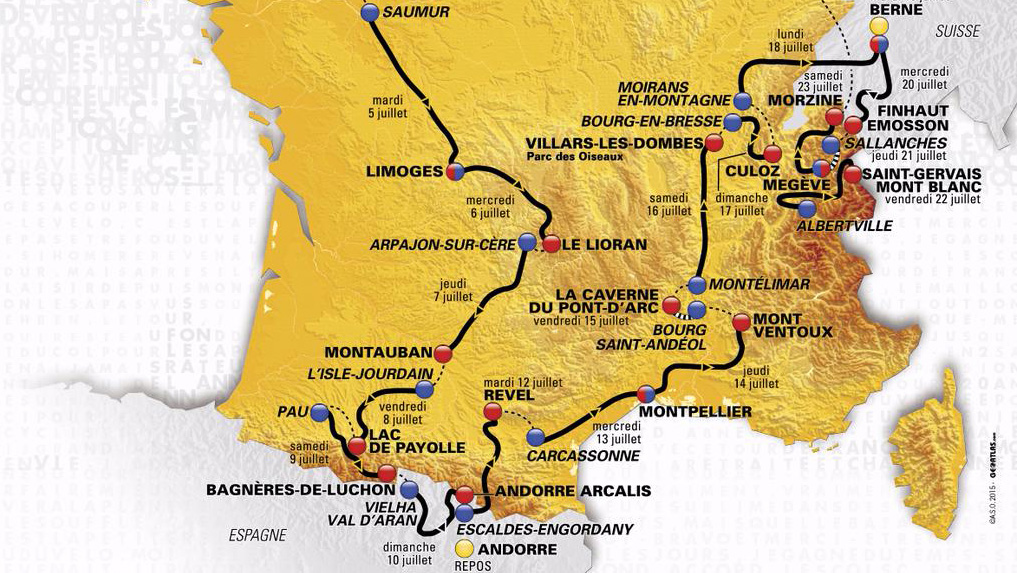
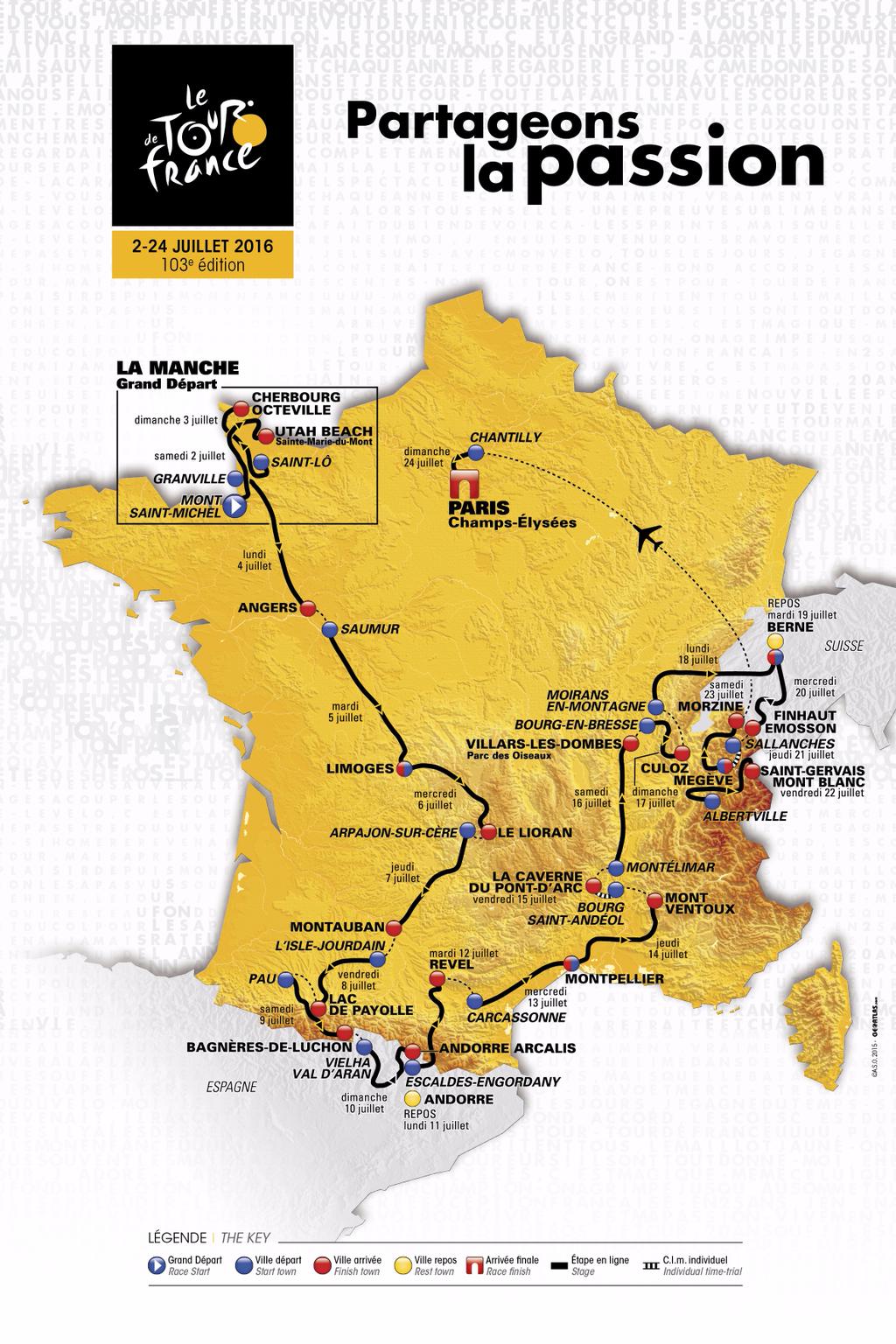
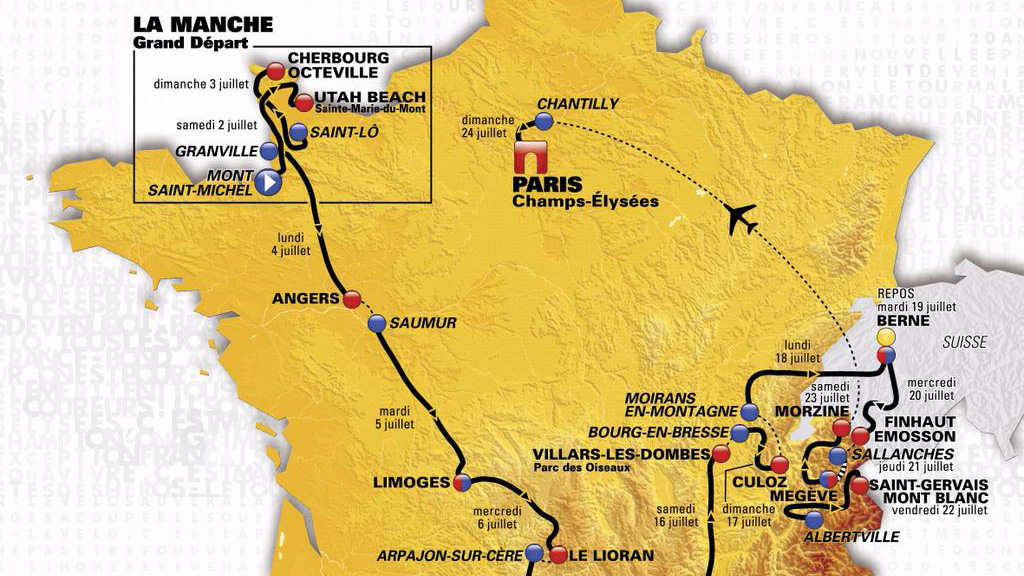
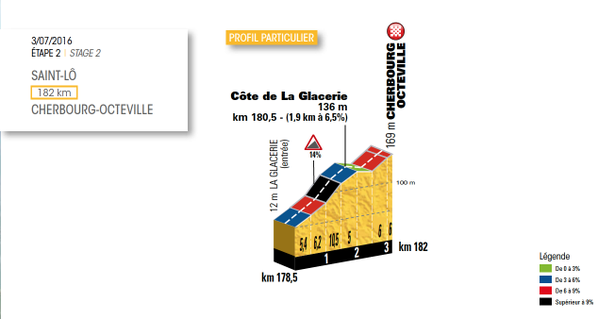
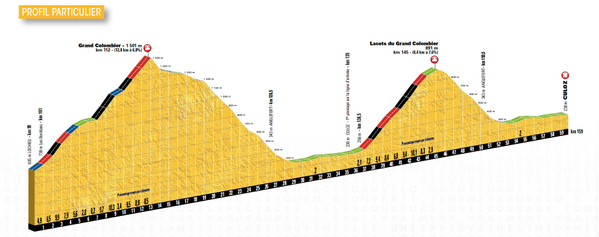
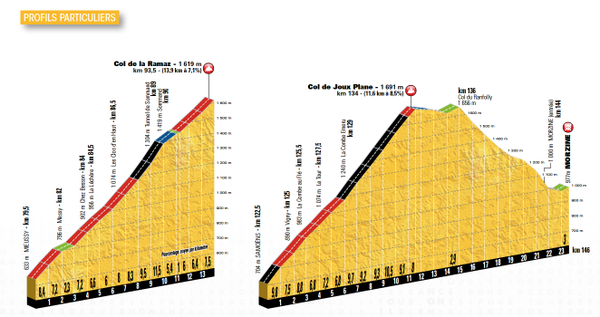
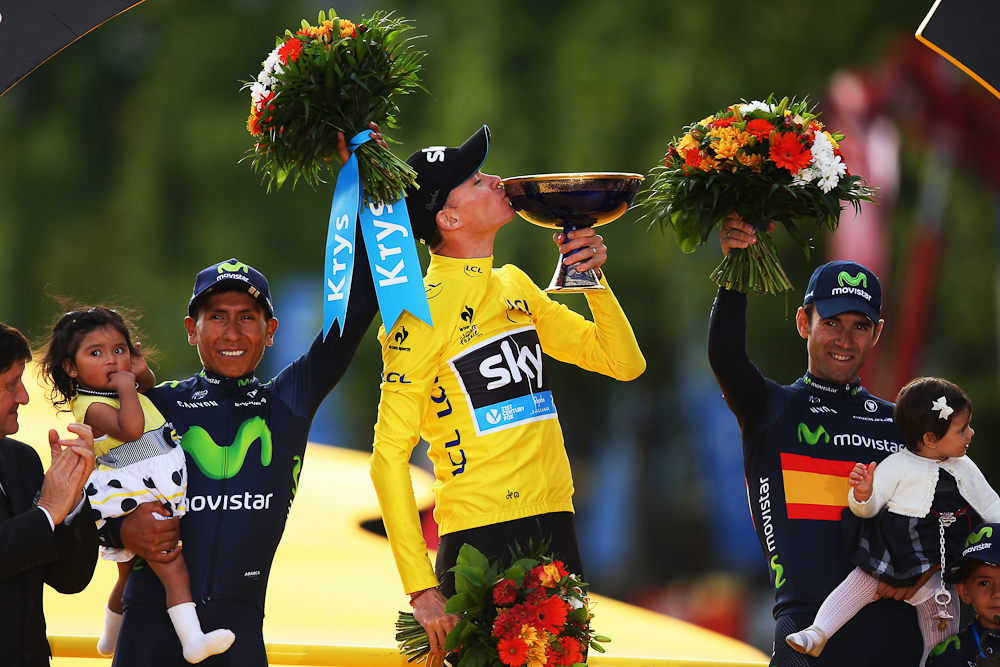
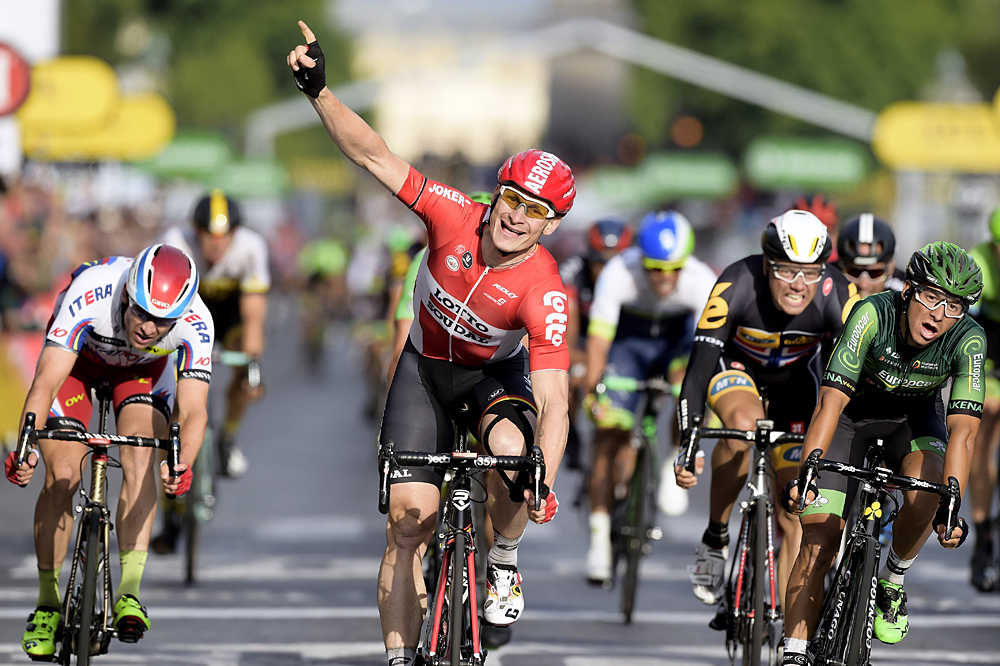
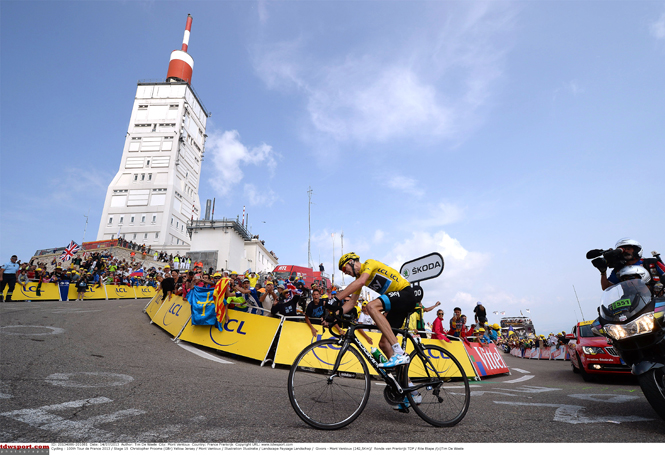
The 2016 Tour de France will visit the Pyrenees, Mont Ventoux, the Alps, and Bern in Switzerland, with a rolling 37km individual time trial into the Gorges de l'Ardeche valley on stage 13 and a mountain time trial between Sallanches and Megève on stage 18 separating the nine mountain stages and four mountain top finishes.
2016 Tour de France to start in Manche
Report: Tour de France to return to Mont Ventoux in 2016
Watch the 2016 Tour de France route presentation Tuesday on Cyclingnews
Watch the 2016 Tour de France route presentation live
2016 Tour de France presentation - gallery
Five conclusions from the 2016 Tour de France route
Chris Froome upbeat about tough 2016 Tour de France route
Contador sees 2016 Tour de France as one for the climbers
Pinot pleased with 2016 Tour de France offering
Coquard dreams of wearing yellow in 2016 Tour de France
Aru tempted by tough 2016 Tour de France route
Hinault: 2016 Tour de France offers a chance to take on Froome
Aru ready for Tour de France debut in 2016 says coach
With no cobbled stage, no prologue time trial or team time trial, the 2016 Tour de France seems tilted in favour of the climbers, perhaps giving French riders Thibaut Pinot and Romain Bardet a real chance to take on Chris Froome, Alberto Contador and Nairo Quintana in 2016.
The full route was unveiled at the official presentation of the race in Paris on Tuesday morning with Froome celebrated as the winner of this year's Tour de France. Also in Paris were Mark Cavendish, Tony Martin, Andre Greipel, Pinot and Daniel Teklehaimanot, who was part of the debuting MTN-Qhubeka team at this year's race and wore the climber's polka-dot jersey early on.
The 2016 Tour de France - the 103rd edition - will start in the northern Manche region of France, overlooking the English Channel, with three road stages across the region. The first starts in the shadows of Mont-Saint-Michel island and finishes along the windswept shores of Utah Beach that will always be remembered for the D-Day landings of World War II. Sea breezes could shake up stage 2 before it finishes atop the Côte de la Glacerie in Cherbourg, offering world champion Peter Sagan a perfect finish to show off his rainbow stripes.
The race will then quickly head south via Angers, Limoges and Montauban, with stages for the sprinters if they can control the breakaways and attacks. Stage five is hilly but not difficult. It celebrates the 80th birthday of French idol Raymond Poulidor by passing through his town of Masbaraud-Mérignat, showing that Le Tour never forgets its greatest second-placed rider of the past.
The mountain stages in the Pyrenees will be brief but intense with a finish in Lac de Payolle and then an up and down 183km stage to Bagnères-de-Luchon. The stage starts with the Col de la Tourmalet and ends with the Col de Peyresourde and a rapid descent to the finish. It seems perfect for a long breakaway.
Andorra is becoming a popular home to riders and the Tour visits the tiny sovereign state for a mountain finish at Arcalis, which was last visited in 2009, when Brice Feillu won the stage and Bradley Wiggins first realised he could be a Tour de France contender. The riders will also enjoy the first rest day in Andorra after nine days of action, before descending to southern France and across to Montpellier.
Get The Leadout Newsletter
The latest race content, interviews, features, reviews and expert buying guides, direct to your inbox!
Mont Ventoux will again host a spectacular mountain-top finish, with the French fans no doubt hoping to celebrate a home winner on July 14 – Bastille Day. The legendary climb first hosted a finish of the Tour in 1958 when Charly Gaul won the stage. It was last included in the 2013 race, when Chris Froome attacked spinning his gears and set up his first Tour success. In 2016 Richie Porte will become a rival instead of a teammate and it will be interesting to see how Froome’s rivals try to stop him spinning away to victory yet again.
A pivotal time trial before more mountains in the Alps
In previous editions of the Tour de France, a finish atop Mont Ventoux would have been the decisive stage of the race. Not in 2016. The day after the Giant of Provence, the riders face the vital 37km individual time trial from the vineyards of Bourg-Saint-Andéol into the Ardeche gorge. The area is hosting a stage to promote a new museum of prehistoric cave drawings but the riders will have little time for history as they dive through the many corners. The 37km route includes 900 metres of climbing. It is a hilly time trial and so perhaps best suits Tom Dumoulin and Tony Martin. It has been designed to help riders tempted to contest the time trial at the Rio Olympics a few weeks later. With only 54km of time trials in the 2016 Tour, this stage could prove pivotal in the general classification.
The third week of the Tour de France starts with an early visit to the Alps early with a tough stage to Culoz and a double climb of the Grand Colombier on stage 14. However the riders can enjoy a respite and recover slightly when the race heads to Berne in Switzerland. The Tour de France visit will no doubt celebrate Fabian Cancellara's career in his hometown and also recall the so-called Fribourg Treaty of 1516, a French-Swiss peace agreement that marked the start of Swiss neutrality. Stage 16 will finish in Berne, with the riders enjoying the second rest day in the Swiss city on Monday July 19.
The decisive mountain stages begin on stage 18 with a new finish at the edge of the Emosson dam after the Gueulaz climb at an altitude of 1960m. The steep climb was used in the 2014 Criterium du Dauphine, with Contador attacking Froome close to the summit and taking the leader's jersey. It rises at 10.4km at 8.4%. The discovery of a secret tunnel road down the other side of the mountain has allowed ASO to create an exit for the riders and race caravan and so allow a Tour de France finish for the first time. The stage is also set to pass UCI headquarters in Aigle in a sign of peace after a bitter fight this summer to reform men's professional cycling.
Mont Blanc will offer a stunning backdrop to the final mountain to Megève, Saint-Gervais-Mont Blanc and Morzine. As Prudhomme pointed out, Europe's highest mountain will overshadow the Tour climbs but not make any of them easier. Many of the Alpine climbs in the 2016 race are little known or making their first appearance in the Tour, promising some unpredictable racing or perhaps a late change of race leadership.
The Sallanches to Megeve 17km time trial is uphill but suited to Grand Tour riders because of its gradual gradient. Only the middle 2.5km section at 9.4% is testing but could convince some riders to opt for road bikes over time trial bikes. Stage 19 to Saint-Gervais-Mont Blanc is 146km long will end with a 7km 7.7% climb to the ski station. It is the same finish was used in the 2014 Dauphine, when Froome beat Tejay van Garderen. The stage seems perfect for a breakaway, as the final overall contenders save their last drops of energy for the final mountain stage to Morzine. Stage 20 to Morzine is also 146km long with the Col de la Ramaz and the nasty Joux Plane in the final 60km, making it a sterner test and final showdown for the fight for the yellow jersey.
Following the fight for the yellow jersey in the Alps, the 2016 Tour de France winner will be celebrated in Paris on Sunday July 24 with the traditional road race stage, starting in Chantilly.
For details, dates and distances of each stage, click here.

Stephen is one of the most experienced member of the Cyclingnews team, having reported on professional cycling since 1994. He has been Head of News at Cyclingnews since 2022, before which he held the position of European editor since 2012 and previously worked for Reuters, Shift Active Media, and CyclingWeekly, among other publications.